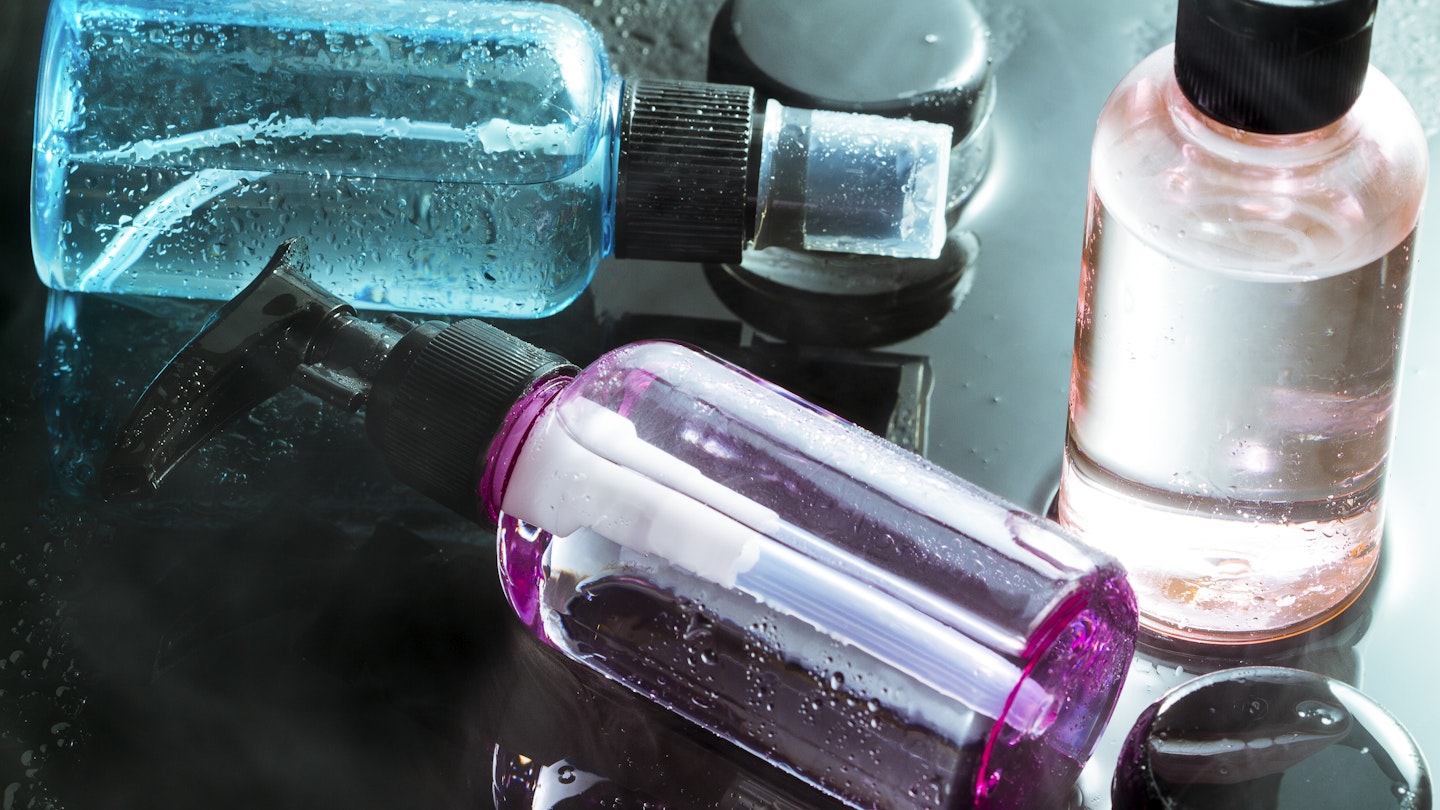Silicones can be found in a range of beauty products, and are responsible for that smooth, silky product texture. Recently, however, as the ‘free-from’ market expands – silicones have come under fire with many brands opting to create silicone-free alternatives.
‘Silicone has a long history of use in cosmetics, and if used in the correct way can be extremely beneficial,’ says Director of Research at Medik8, Daniel Isaacs. ‘In products like moisturisers, they provide an occlusive barrier which slows down water loss to help to keep the skin hydrated, and they are often used to give slip to products.’
But what actually is a silicone, and should we really be avoiding them? We've spoken to the industries experts to find out...
So, what exactly is a silicone?
‘Silicone is a synthetic polymer derived from silica,’ says Rahua Co-Founder, Fabian Lliguin. ‘They take on a silk-like texture, so are often used in cosmetics for their smoothing and softening effects on hair and skin.’
Pro silicone, Creative Director at Lockonego for Redken, Ant Rawlings states - ‘they allow us to achieve a wide range of textures and a high level of product performance, by filling damaged or roughened cuticle surface areas to ensure the hair is smooth and better protected.’
They also create a barrier on both hair and skin, preventing moisture loss and acting as a seal.
Are silicones bad for your hair and skin?
So far, so good. So why the bad rap? One reason for why people dislike silicone is because it doesn’t actually fix the problem per se. Rather, silicones mask the problem with their smoothing and filling abilities.
‘While silicones can provide the appearance of smoothness and silkiness, it is a cosmetic effect rather than actual transformation or healing,’ says Lliguin who is in the against camp. ‘Silicones do not provide any long-term benefits to the hair. They do not have the ability to provide hydration, they just mask the problem, perpetuating it without resolving dryness or breakage.’
Isaacs argues that while silicone has received a bad reputation in the past, it is often misunderstood, and silicone is extremely advanced in today's market. ‘Silicone is mostly inert and is thus extremely safe on the skin. Silicones are also non-comedogenic and will not clog pores or cause blemishes.’
One reason for concern is their environmental impact, as silicones are not biodegradable and therefore contaminate our waterways. Cyclopentasiloxane (D5) and cyclohexasiloxane (D6) are two silicones currently being evaluated at European level under the PBT criteria (Persistent, Bioaccumulative, Toxic) for the environment.
Should we be investing in silicone-free beauty products?
‘It's a personal choice - when used in the correct way silicones are extremely beneficial in skincare,’ says Isaacs. And whilst they may not have long-term benefits for our hair, they do enable a variety of product texture and act as a successful barrier.
If you want to avoid silicone in skincare you can use essential oils as an alternative. ‘This will improve fluidity, improving how smoothly a product is applied to the skin. Add a few drops of essential oil to your favourite day cream or apply before on bare skin to improve the slip,’ recommends Isaacs.
Over on hair, there are many natural and plant-based ingredients that can be used to give shine and smoothness through the hair. Opt for hair oils and treatments like Rahua’s Oil, £40, rich in Omega 9 nutrients to bolster shine. And try a silicone-free shampoo like Pureology Hydrate Sheer, £20.50, blended with jojoba and green tea to condition strands.
Shop our curated edit of silicone-free beauty products here:
Silicone-Free Beauty Products
 1 of 4
1 of 4Redken Nature + Science Extreme Shampoo, £18.50
 2 of 4
2 of 4Rahua Legendary Amazon Oil, £40
 3 of 4
3 of 4Pureology Pure Hydrate Superfood Mask, £28.55
 4 of 4
4 of 4Champo Vata Hydrating Collection, £38.50
READ MORE: Beauty Lingo Decoded: What Is A Sulphate-Free Shampoo And Should We Be Using Them?
